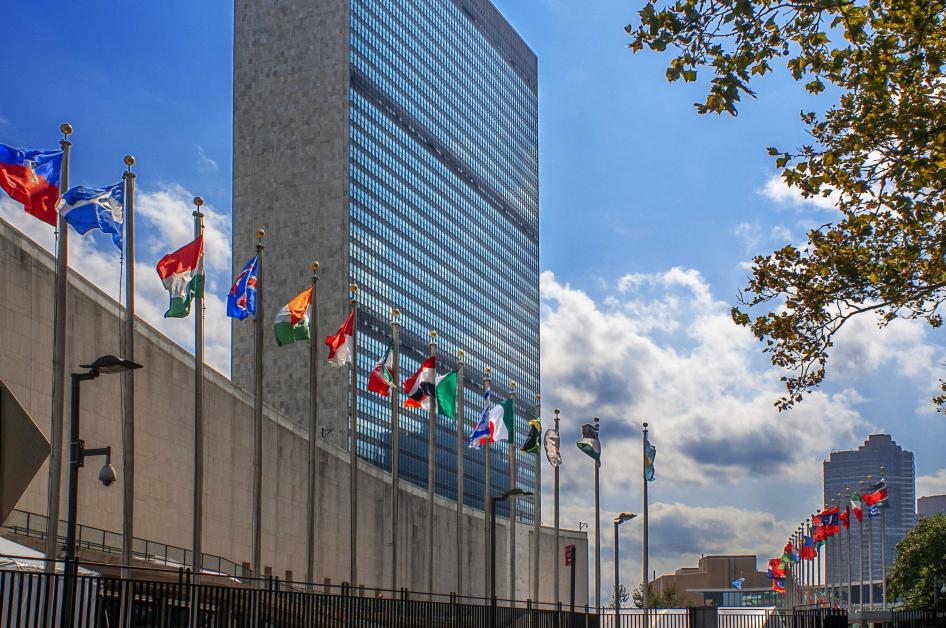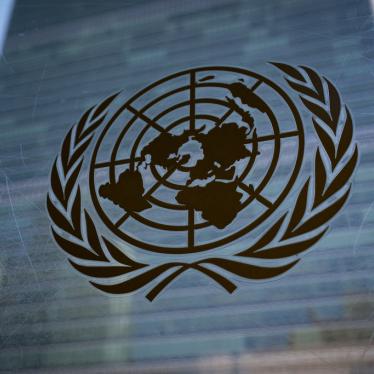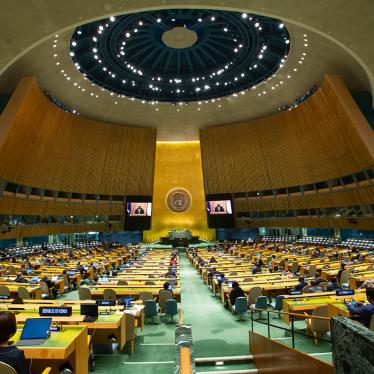(New York) – United Nations member countries should vote to launch formal negotiations for a treaty that would prevent and punish crimes against humanity, Human Rights Watch said today.
The proposed convention has been under consideration in the UN General Assembly’s Sixth Committee which deals with legal matters. The Committee has traditionally made decisions by consensus.
Yet, because Russia is opposed to these negotiations, it will not support the draft resolution backed by a broad cross-regional group of states and the issue is expected to go to a vote on Friday, November 22.
“The underlying imperative for this treaty is rooted in the proliferation of crimes against humanity ravaging civilian populations in every region of the globe,” said Richard Dicker, senior legal adviser at Human Rights Watch. “The lack of a treaty leaves a stark gap in protecting civilians clearly at risk and if the Russian Federation tries to obstruct progress by insisting on a vote, other countries should make sure this tactic fails.”
Unlike for genocide, war crimes, torture, enforced disappearances, and apartheid, there is no specific international treaty to prevent and punish these egregious offenses. Crimes against humanity are acts of murder, rape, torture, mutilation, disappearance, and other egregious offenses committed on a widespread or systematic basis against civilians as part of a plan or policy of a government or organization.
While initially utilized at the Nuremberg Tribunal, and included as an important addition to the Rome Statute of the International Criminal Court, these offenses have never been formally codified in a separate international treaty that obligates its member states to cooperate with each other in taking measures to prevent and punish these crimes.
The underlying rule of law and human rights stakes have been demonstrated all too clearly in Ethiopia, Ukraine, Israel and the occupied Palestinian territory, Sudan, and Myanmar, in the last three years alone, Human Rights Watch said. In all these states there have been countless victims of crimes against humanity. These grave crimes have proliferated in the absence of a treaty.
The draft resolution calls for beginning negotiations at a three-week session of a Diplomatic Conference in early 2027. The process is mandated to conclude with a completed treaty text at a second three-week session in early 2028.
“It is key for UN members to stand with the goal of the draft resolution, setting a definite timeline for starting and completing negotiations on a much-needed new international convention,” Dicker said.
The Draft articles on Prevention and Punishment of Crimes Against Humanity, prepared by the UN’s International Law Commission, had been the focus of several years of consultation between the International Law Commission and UN member states at the UN General Assembly. These draft provisions, the record of the General Assembly’s Sixth Committee’s two special sessions, written submissions made by governments in December 2023, along with additional amendments proposed by states, will be considered at the proposed diplomatic conference that will be held at UN Headquarters in New York.
The 94 co-sponsoring UN member states already committed to negotiations represent a broad cross-regional group led by Mexico and The Gambia. The supportive states come from the Americas, Africa, Europe, Asia, and the Middle East and North Africa. Additional states can continue to cosponsor the draft resolution.
“At a time of increasing conflicts in today’s geopolitically divided world, this vote will send a crucial message that the protections in international law are strengthening, not withering,” Dicker said.








